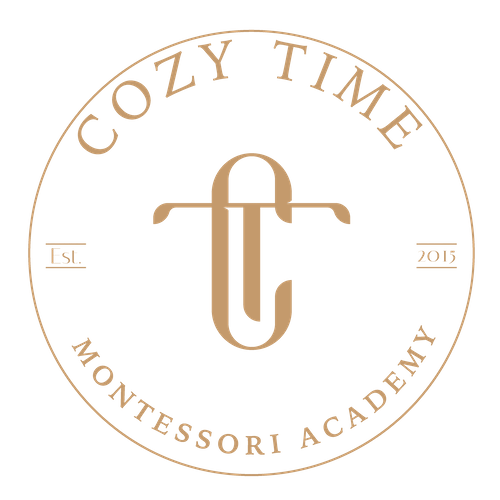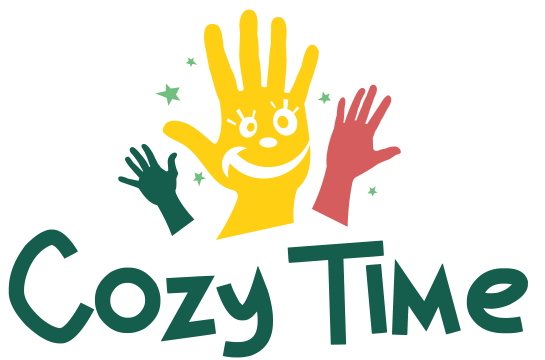Personal Journey to a Montessori Daycare
In the early years of my parenting journey, I found myself at a crossroads – traditional daycare or Montessori daycare? A friend introduced me to the Montessori method, and my curiosity was piqued. I delved into research, learned about its history and principles, and soon enough, I was swept away by the philosophy of allowing children to learn at their own pace in a supportive environment. This personal journey brought me to where I am today, a fervent believer in Montessori education and a proud parent of a Montessori graduate.
Decoding Montessori Daycare
Before you can talk to your child about Montessori daycare, you need to understand what it entails. Montessori daycare is a child-centered educational approach based on scientific observations made by Dr. Maria Montessori. It values the human spirit and the development of the whole child—physical, social, emotional, and cognitive.
Unlike traditional daycare, which typically focuses on playtime and basic learning, a Montessori daycare in Toronto like Cozytime Child Care, provides children with a structured yet flexible learning environment. This unique approach encourages children to explore their interests and develop at their individual pace, building a solid foundation for lifelong learning.
Benefits of Montessori Daycare
- Montessori education cultivates a child’s natural desire to learn.
- It promotes hands-on, self-paced, collaborative, and joyful learning.
- Montessori classrooms are designed to meet a child’s cognitive, emotional, and physical needs.
- It nurtures creativity, social skills, and problem-solving abilities.
Preparation Before The Talk
Preparation is key when explaining Montessori to a child. Take time to familiarize yourself with the principles of Montessori education. You don’t need to be an expert, but a basic understanding will help you communicate the concept to your child.
Next, reflect on your child’s learning style. Are they hands-on learners or do they prefer observation? Tailor your discussion on Montessori daycare concepts based on your child’s individual learning style.
Finally, create the right mental environment before introducing your child to Montessori. Ensure that you and your child are relaxed and open-minded. Remember, this conversation is not about convincing your child, but rather, it’s about preparing your child for a Montessori journey.
Communicating Montessori Method To Your Child
When talking about Montessori daycare, use simple language. Explain that they will get to explore their interests, play with other kids, and learn new things. You can also share that in Montessori daycare, they will have teachers who will guide them but also give them the freedom to learn on their own.
Storytelling can be an effective way to communicate the Montessori method to your child. Share stories of children who have attended Montessori daycare, like Cozytime Child Care in Toronto. Paint a picture of a typical day, filled with learning, fun, and friendship.
In summary, discussing Montessori daycare with your child is about providing them with an understanding of what to expect. With patience, understanding, and the right approach, you can prepare your child for a successful transition to Montessori daycare. For more information about Montessori daycare in Toronto, feel free to reach out to Cozytime Child Care at (416) 602 3811.
When Simon Met His First Montessori Puzzle
As a seasoned Montessori educator, I’ve had the privilege of witnessing countless moments of discovery. I still vividly remember a particular incident with a five-year-old named Simon. He was about to encounter his first Montessori puzzle. This incident unfolded at Cozytime, a reputable daycare centre in Toronto, known for its Montessori approach. It serves as a perfect anecdote to initiate our discussion on introducing children to Montessori concepts.
Choosing the Right Time and Place
The beauty of the Montessori method lies in its emphasis on natural learning. Timing and environment play critical roles. Simon’s introduction to the Montessori puzzle didn’t occur in a structured classroom setting. Instead, it happened in our daycare centre’s play area, where Simon felt most comfortable. This incident underlines the importance of choosing the right time and place to introduce your child to Montessori concepts. The environment should be comfortable, familiar, and free from undue stress or pressure.
Using Simple and Clear Language
When I introduced the puzzle to Simon, I used simple language that he could easily understand. I didn’t use terms like “sensorial development” or “fine motor skills”. Instead, I said, “Simon, this puzzle can help you get better at picking up small things and understanding shapes.” Applying a clear and simple language is critical in explaining new concepts to children.
Comparing With Something Familiar to the Child
While explaining the puzzle to Simon, I compared it to his favourite game of building blocks. This comparison helped him grasp the new concept quickly and with ease. When introducing Montessori concepts, relating them to something familiar can make the process smoother.
Explaining Montessori Concepts to Your Child
Explaining Montessori concepts to your child need not be daunting. It’s all about breaking down these concepts into digestible chunks that children can understand and appreciate.
Activity-Based Learning
In the Montessori method, learning occurs through hands-on activities. When Simon was working with the puzzle, he was strengthening his fine motor skills and his understanding of shapes. He was learning, not through rote memorization, but through practical activity.
Self-Directed Activities
One key aspect of Montessori is self-direction. I didn’t dictate how Simon should approach the puzzle. He was free to explore and solve it in his own way. This autonomy fosters problem-solving skills and independence.
Mixed Age Classrooms
At Cozytime, children of different ages play and learn together, just like in a Montessori classroom. When Simon was struggling with the puzzle, an older child stepped in to assist. This interaction is another key Montessori concept – mixed age classrooms. It promotes peer learning and social skills.
Preparing Your Child for Montessori Daycare
Once you’ve explained the Montessori concepts, the next step is to prepare your child for the Montessori daycare. Encourage your child to explore their independence and curiosity in a supportive environment, emphasizing the value of self-directed learning. Additionally, consider volunteering at Montessori classrooms to gain firsthand experience and insight into the teaching methods and daily routines. This involvement can also help your child become more comfortable with the Montessori philosophy and foster a sense of anticipation for their new daycare setting. This involves creating a routine that aligns with Montessori principles, allowing your child to explore and make choices within a structured environment. Additionally, involve them in handling some of their own responsibilities as a way of building independence. Preparing for Montessori daycare can also include visiting the space together to help them acclimate and feel comfortable in their new surroundings.
Fostering Independence at Home
Before Simon joined our daycare, his parents had been fostering independence at home. They encouraged him to dress himself, clean up his toys, and help with household chores. This preparedness made his transition to Montessori daycare smooth.
Taking a Tour of the Daycare Together
Simon’s parents also took him on a tour of our daycare centre before his first day. This visit helped familiarize Simon with the environment, easing his initial anxiety.
Answering Your Child’s Queries Patiently
Simon had many questions about the daycare and the activities he would be doing. His parents patiently answered each question, ensuring he felt comfortable and ready for this new chapter.
Encouraging Enthusiasm and Positivity
Lastly, it’s crucial to foster a positive attitude and enthusiasm about the new experience.
Highlighting the Fun Aspects
Simon was excited about the prospect of playing with new puzzles and making new friends. His parents always focused on the fun aspects of the daycare to keep his anticipation high.
Showing Excitement About the New Experience
Simon’s parents would frequently express their excitement about his new daycare. This positive energy was contagious and helped Simon look forward to joining Cozytime.
Nurturing an Eagerness to Learn
By discussing the interesting activities and learning opportunities at the daycare, Simon’s parents nurtured an eagerness to learn in him. This enthusiasm is an essential attribute for any child entering a Montessori environment.
In summary, introducing your child to the Montessori method can be a rewarding journey. At Cozytime daycare in Toronto, we’re committed to making this transition as smooth as possible for both you and your child. For more information, feel free to reach us at (416) 602 3811.

